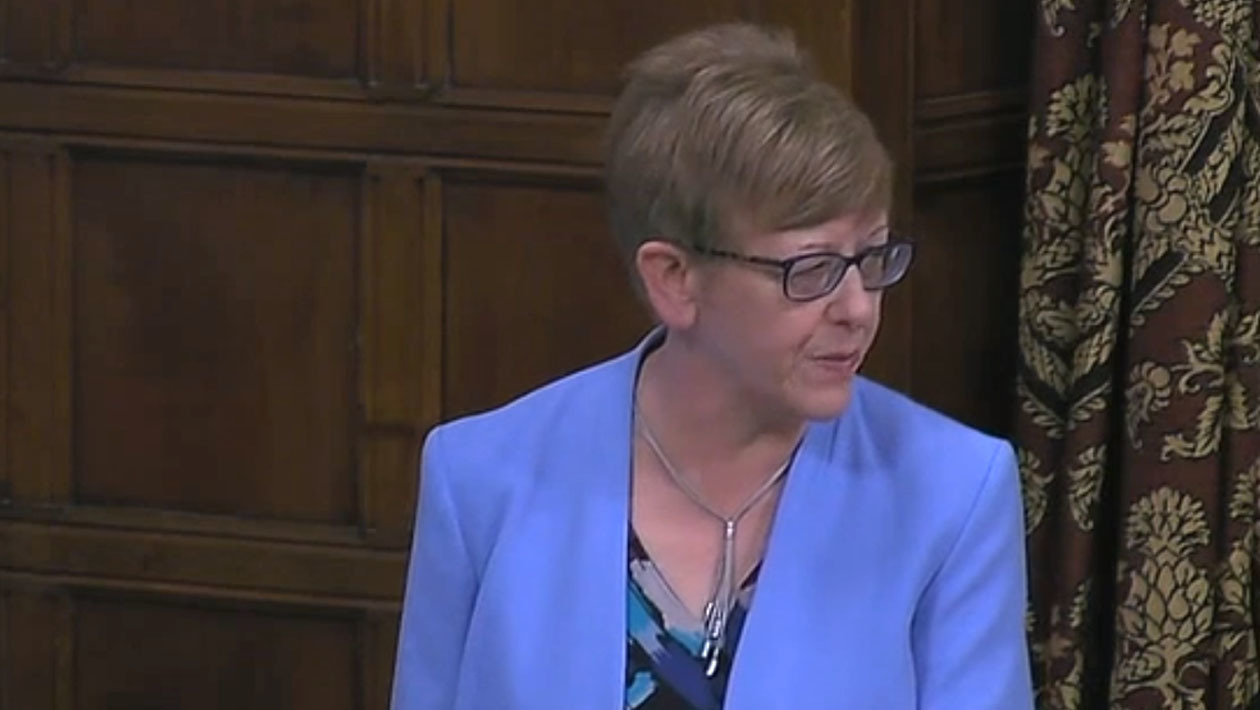This petition was submitted during the 2017-2019 parliament
Petition Violet-Grace’s Law - Life sentences for Death by Dangerous Driving
The men who killed our daughter drove a stolen a car at 83 mph in a 30 mph zone. They killed our 4-year-old daughter Violet-Grace and severely injured her nan, who has life-changing injuries. They will serve less time in prison than Violet was alive. I don’t want other families to suffer like this.
More details
In October 2017, the Government promised life sentences for death by dangerous driving. It’s now 2019. Innocent people have been killed, but nothing has changed. The law is out of date.
Anyone convicted of death by dangerous driving should receive life imprisonment with a minimum tariff of 15 years. If more than one person is killed or injured, the sentences must run separately.
https://www.dailymail.co.uk/news/article-4522390/Driver-killed-girl-four-80mph-smash-sentenced.html
This petition is closed This petition ran for 6 months
167,506 signatures
Show on a map the geographical breakdown of signatures by constituency
100,000 signatures required to be considered for a debate in Parliament
Parliament debated this topic
Government responded
This response was given on 25 February 2019
Driving offences can have devastating consequences for victims and their loved ones. Sentencing in individual cases is always a matter for the courts, which are independent.
Read the response in full
This was a deeply tragic case and our sympathies remain with Violet-Grace’s family. No sentence can make up for the loss of a loved one but we are focused on getting the law right, to ensure the changes we make are comprehensive, proportionate and, we hope, might help avoid some further unnecessary deaths on our roads.
In October 2017 we published the government response to the consultation on driving offences and penalties relating to causing death or serious injury and confirmed proposals to: increase the maximum penalty for causing death by dangerous driving from 14 years’ imprisonment to life; increase the maximum penalty for causing death by careless driving under the influence of drink or drugs from 14 years’ imprisonment to life; and create a new offence of causing serious injury by careless driving. Increasing the maximum penalty to life will enable the courts to impose a life sentence or any lesser sentence, including a determinate sentence of any length.
Minimum sentences are rarely used in criminal law in England and Wales. To allow judges to take into account all circumstances of the case, the normal practice is for Parliament to set maximum penalties and for the courts to determine the appropriate sentence, having regard to the facts of an individual case. This is why our sentencing framework generally sets maximum penalties but not minimum penalties, and even where a minimum sentence is introduced the court retains a discretion not to impose the sentence where it would be unjust to do so in a particular case.
While we recognise the very great harm caused by dangerous drivers who are responsible for multiple deaths or injury, it is a general principle of law that sentences are imposed to be served concurrently when they relate to the same course of events and consecutively when they relate to separate incidents. However, the death of more than one victim as a result of the offence is an aggravating factor the courts take into account in determining the length of sentence to impose.
We will bring forward proposals for reform of the law as soon as parliamentary time allows.
Ministry of Justice
Related activity
Update on debate date
The date for the debate on the petition “Violet-Grace’s Law - Life sentences for Death by Dangerous Driving” has been changed to Monday 10 July.
This debate was originally scheduled for Monday 3 June, but has been changed because Parliament will not sit that day.
Update on debate date
We're sorry but we made a mistake over the debate date in our previous email.
The date for the debate on the petition “Violet-Grace’s Law - Life sentences for Death by Dangerous Driving” has been changed to Monday 8 July, not Monday 10 July.
This debate was originally scheduled for Monday 3 June, but has been changed because Parliament will not sit that day.
